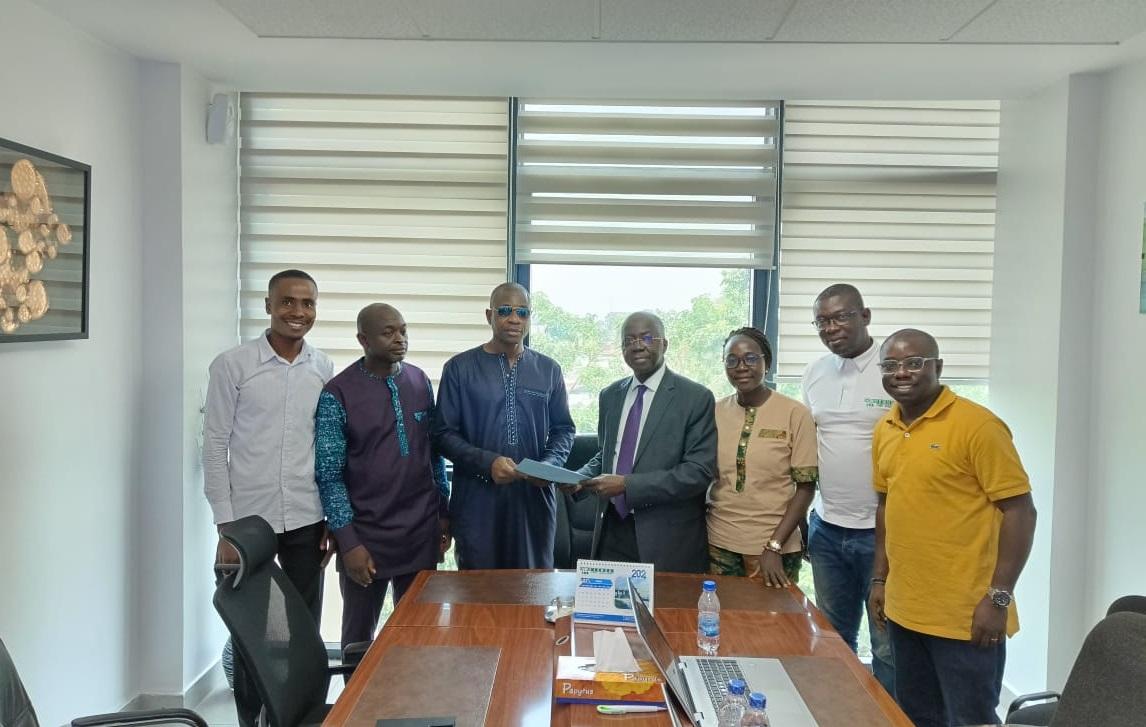
The headquarters of Ivoire Hydro Energy (IHE), located in Abidjan Cocody-Vallon, was the scene of a momentous event on Friday 15 March 2024. As part of the signing of the agreement between IHE and the African Centre of Excellence for Climate Change, Biodiversity and Sustainable Agriculture at the Université Félix Houphouët-Boigny (WASCAL/CEA-CCBAD), a research project was presented. The project is part of the Projet d'Aménagement Hydroélectrique de Singrobo-Ahouaty (PAHSA), demonstrating IHE's ongoing commitment to the sustainable management of natural resources and the environment.
The event, which ran from 11am to 12pm, was attended by a distinguished gathering including Alain Ekolan ETTY, Chairman of IHE, as well as Jules ASSI, Biodiversity Coordinator and other IHE representatives. On the WASCAL/CEA-CCBAD side, Professor DONGO Kouassi, Thesis Director, Professor ALABI T. Fabrice, CEA-CCBAD Programme Coordinator, and Fulgence DEABO, the doctoral student who received the grant.
The presentation of the research project highlighted the crucial importance of understanding the impact of climate change on water resources and biodiversity in the area of influence of hydroelectric dams, with particular emphasis on the Bandama catchment in Côte d'Ivoire. This research project, conducted as part of the PAHSA programme, aims to characterise the changes in biological systems associated with climate change, with a view to ensuring the sustainability of hydroelectric infrastructure.
The general and specific objectives of the study have been carefully developed to assess the impact of climate change on the hydrological regime, biodiversity and water quality in the region, and to propose recommendations and mitigation strategies for the risks identified.
Through this collaboration, IHE/PAHSA is once again demonstrating its commitment to the sustainable management of natural resources and the environment, as well as its fruitful collaboration with the academic world in tackling the complex environmental challenges facing development projects.